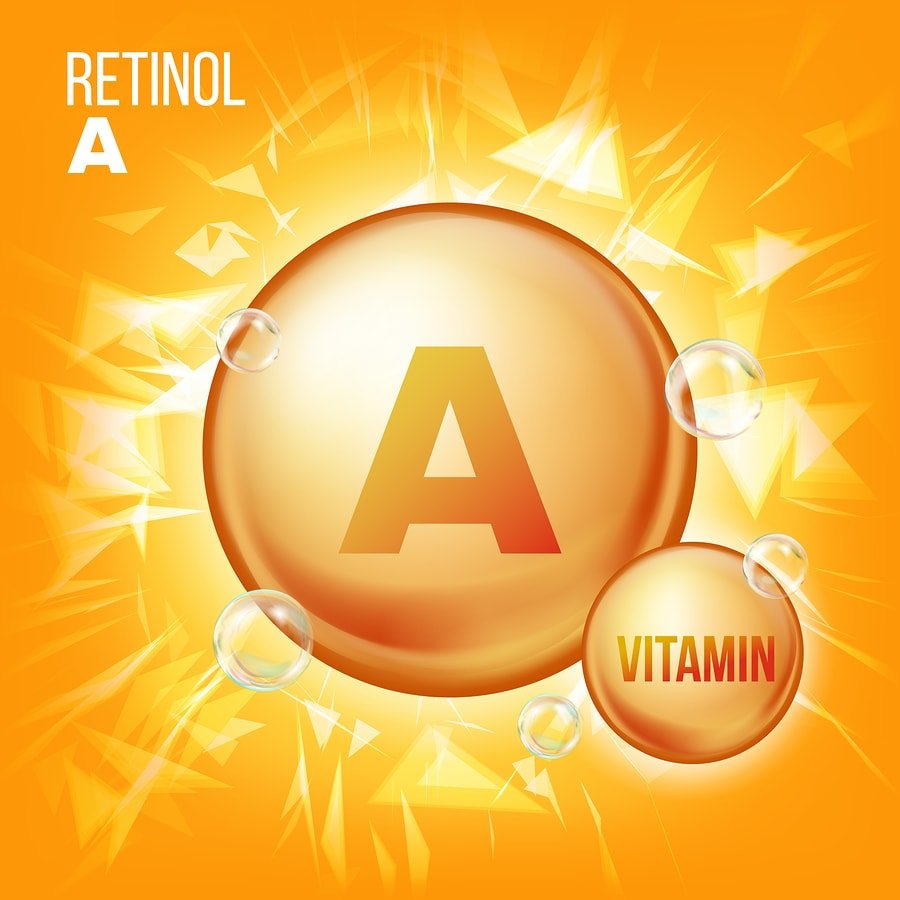There are cases of neuropathy when taking B6 in doses starting from 1.8 mg, including from complex supplements."This sensory neuropathy usually develops at doses of pyridoxine above 1000 mg per day. There are some case reports of sensory neuropathies at doses of less than 500 mg per day in patients taking supplements for months. However, none of the studies had sensory nerve damage at a daily intake below 200 mg pyridoxine per day.[3]"
Navigation
Install the app
How to install the app on iOS
Follow along with the video below to see how to install our site as a web app on your home screen.
Note: This feature may not be available in some browsers.
More options
-
By using this site you agree to the terms, rules, and privacy policy.
-
Charlie's Restoration Giveaway #2 (Entire Home EMF Mitigation & Protection Along With Personal Protection) - Click Here To Enter
-
Dear Carnivore Dieters, A Muscle Meat Only Diet is Extremely Healing Because it is a Low "vitamin A" Diet. This is Why it Works so Well...
Rest the rest of this post by clicking here
-
The Forum is transitioning to a subscription-based membership model - Click Here To Read
Click Here if you want to upgrade your account
If you were able to post but cannot do so now, send an email to admin at raypeatforum dot com and include your username and we will fix that right up for you.
You are using an out of date browser. It may not display this or other websites correctly.
You should upgrade or use an alternative browser.
You should upgrade or use an alternative browser.
Low Toxin Diet Grant Genereux's Theory Of Vitamin A Toxicity
It's like saying "if you already have health problems, it's more likely that you will get vitamin A toxicity".If you have problems with the conversion enzyme you may very quickly get toxicity symptoms due to build-up of pyridoxine. This goes back to my original point of taking all the vitamins together, because the enzyme that metabolizes pyridoxine to the active form is a riboflavin dependent enzyme. So in those with toxicity, more riboflavin is likely needed to treat it.
redsun
Member
- Joined
- Dec 17, 2018
- Messages
- 3,013
lol, do you really think processed foods cause diabetes? Diabetes is on the rise, but the consumption of processed foods is not.
The consumption of processed food is the highest it has ever been, coupled with lack of nutrient dense foods. How is a rise in diabetes not expected of a degenerating, less healthy population? Please dont tell me you think niacin fortification is a major underlying cause of diabetes.
Processed foods do not cause diabetes. Lack of nutrient dense foods, chronically poor sleep habits, obesity, chronic stress of modern living, hormonal imbalance and loss of insulin sensitivity are the main contributing factors for the rise in diabetes. Naturally, if the vast majority of one's diet is processed garbage, where is the room for real food? Right there's no room, and this is the case for most people, especially the poor who have trouble affording healthy nutrient dense food.
There are cases of neuropathy when taking B6 in doses starting from 1.8 mg, including from complex supplements.
Well then you should know without a doubt that is a lie since this dose is possible from food. You going to tell me the levels of pyridoxine in high B6 plant foods is toxic now too? Why do you even take that seriously?
It's like saying "if you already have health problems, it's more likely that you will get vitamin A toxicity".
This is not even close to that. Riboflavin is a necessity in activating the other vitamins. So because someone has poor riboflavin status and cannot readily convert pyridoxine to nontoxic pyridoxal like they are supposed to, B6 must be toxic? No, the individual needs to remedy their poor status of nutrients needed to metabolize B6. This literally proves that B6 is not toxic to the body but riboflavin deficiency is toxic to the body.
For Vitamin A to be stored properly it depends on phosphatidylcholine and thus choline to be stored as retinyl esters. Are you going to tell me poor choline status is not a contributing problem to vitamin A toxicity symptoms and that vitamin A itself is toxic regardless of dose? I cannot help but chuckle when I see posts of people get a few hundred IUs of vitamin A from a food after not getting much retinol for weeks and get serious symptoms. This is clearly evidence of an underlying problem metabolizing vitamin A normally.
Iron builds up in organs and damages them, which is toxic to a body deficient in copper which is required to put iron in the right spots. Therefore iron is toxic and copper status is not the problem.
Last edited:
vitamin C has some interactions with copper and taurine too.The consumption of processed food is the highest it has ever been, coupled with lack of nutrient dense foods. How is a rise in diabetes not expected of a degenerating, less healthy population? Please dont tell me you think niacin fortification is a major underlying cause of diabetes.
Processed foods do not cause diabetes. Lack of nutrient dense foods, chronically poor sleep habits, obesity, chronic stress of modern living, hormonal imbalance and loss of insulin sensitivity are the main contributing factors for the rise in diabetes. Naturally, if the vast majority of one's diet is processed garbage, where is the room for real food? Right there's no room, and this is the case for most people, especially the poor who have trouble affording healthy nutrient dense food.
Well then you should know without a doubt that is a lie since this dose is possible from food. You going to tell me the levels of pyridoxine in high B6 plant foods is toxic now too? Why do you even take that seriously?
This is not even close to that. Riboflavin is a necessity in activating the other vitamins. So because someone has poor riboflavin status and cannot readily convert pyridoxine to nontoxic pyridoxal like they are supposed to, B6 must be toxic? No, the individual needs to remedy their poor status of nutrients needed to metabolize B6. This literally proves that B6 is not toxic to the body but riboflavin deficiency is toxic to the body.
For Vitamin A to be stored properly it depends on phosphatidylcholine and thus choline to be stored as retinyl esters. Are you going to tell me poor choline status is not a contributing problem to vitamin A toxicity symptoms and that vitamin A itself is toxic regardless of dose? I cannot help but chuckle when I see posts of people get a few hundred IUs of vitamin A from a food after not getting much retinol for weeks and get serious symptoms. This is clearly evidence of an underlying problem metabolizing vitamin A normally.
Iron builds up in organs and damages them, which is toxic to a body deficient in copper which is required to put iron in the right spots. Therefore iron is toxic and copper status is not problem.
but thats interesting so supplemental vitamin A could definitely cause issues with choline, and liver/milk should be safer due to their choline?
that small supplemental dosage of b6 pyrixodine could be toxic for the same reasons you mentioned it could be that food sources have something to balance the b6
redsun
Member
- Joined
- Dec 17, 2018
- Messages
- 3,013
No I still think liver is way too high a dose to take chronically. If your deficient in vitamin A than its a life saver. Otherwise its only good to have rarely. Status of Vitamin D, Vitamin E, choline, B3, seemed to be majorly related to how easily toxicity happens. Also overall protein intake.vitamin C has some interactions with copper and taurine too.
but thats interesting so supplemental vitamin A could definitely cause issues with choline, and liver/milk should be safer due to their choline?
that small supplemental dosage of b6 pyrixodine could be toxic for the same reasons you mentioned it could be that food sources have something to balance the b6
So, we have a SHARP increase in obesity after the start of vitamin fortification in the USA, but sugar consumption has hardly changed. I could not find statistics on the consumption of refined flour, but it exist a long time and we should not expect any significant increase in consumption.The consumption of processed food is the highest it has ever been, coupled with lack of nutrient dense foods. How is a rise in diabetes not expected of a degenerating, less healthy population? Please dont tell me you think niacin fortification is a major underlying cause of diabetes.
Attachments
In that case, why should I take the researchers you cite seriously? I don't see any flaws in this study, but I see flaws in your logic.Why do you even take that seriously?
pyridoxal is also toxic, there are plenty of examples of people who confirm this and Ray Peat confirms it. If you don't want to see it, that doesn't mean it doesn't exist.nontoxic pyridoxal
Do you really think that people from this thread, from the Grant forum. simply do not have enough choline for happiness? I have half a kilo of choline and I took it when I had strong brainfog, and it didn't help me.For Vitamin A to be stored properly it depends on phosphatidylcholine and thus choline to be stored as retinyl esters. Are you going to tell me poor choline status is not a contributing problem to vitamin A toxicity symptoms and that vitamin A itself is toxic regardless of dose? I cannot help but chuckle when I see posts of people get a few hundred IUs of vitamin A from a food after not getting much retinol for weeks and get serious symptoms. This is clearly evidence of an underlying problem metabolizing vitamin A normally.
My VA problems did not begin immediately after taking VA.
Sefton10
Member
- Joined
- Oct 19, 2019
- Messages
- 1,593
Nice analogyThose might be useful substances, but personally I feel like it's pulling levers and pressing buttons in an airplane cockpit, it's just too complex. It's the same with "official" medicine, does anyone ever get truly free from a chronic condition? It might not just be the malevolence of doctors, but also the difficulty of using unnatural chemicals to adjust a natural system.
Vitamin A increases your Th2 immune system and decreases Th1 and Th17.
The following have been associated with Th2 dominance (Vitamin A is bad for them):
IgE-related allergies, which are immediate and can be measured by skin scratch tests
Seasonal allergies
Airway constriction
Asthma
Nasal drip
Mucus
Eczema (Dermatitis)
Hay fever (Allergic rhinitis)
Increased stomach acidity or GERD
Excess histamine or what some people call “histamine intolerance”
Hives (Urticaria)
Chronic Fatigue Syndrome
Autism
Uveitis
Grave’s disease
Sjogren’s disease
Oral Lichen Planus
SLE
&
Cancers
 raypeatforum.com
raypeatforum.com
The following have been associated with Th1 dominance (Vitamin A is good for them):
Delayed food sensitivities
Fatigue
IBS
Rheumatoid arthritis
Hashimoto’s thyroiditis
Low T3 / Euthyroid sick syndrome
Potentially more thin
IBD
Psoriasis and rosacea
Celiac disease
Crohn’s disease
Type 1 diabetes
PCOS
Alzheimer’s
Lupus
Multiple sclerosis
Guillain-Barré syndrome
Post-infectious IBS
Behcet’s
Vitiligo

 selfhacked.com
selfhacked.com
Whether supplementation would help these people I can’t know. It could be more of utilization problem or another issue, but retinoic acid and its interactions is a major link in inflammation/disease that holds promise for people.
This is one reason why people with chronic inflammation without fail have skin problems.
Vitamin A protects our eyes and skin from UV damage, so it will allow you to get UV and limit skin cancer risk [1].
Vitamin A is also crucial in activating Retinoic Acid Receptors (RAR).
Both RAR and RXR are crucial DNA binding proteins (transcription factors), which are needed for genetic expression. RXR is needed to activate the vitamin D receptor (VDR) and the Thyroid Hormone Receptor (THR).
In simple English, this means if you’re deficient in vitamin A you can take all the vitamin D you want and it won’t make that much of a difference because you need adequate vitamin A to make these work properly.
Vitamin D absolutely needs RXR in order to get the benefits from it and Thyroid hormones need RXR to work effectively.
See below how you need Vitamin D Receptor (VDR) to combine with Retinoid X Receptor (RXR) to result in gene expression. Therefore, you need adequate retinoic acid (a breakdown product of retinol) and vitamin D3 for these to function.

We also make pregnenolone from LDL cholesterol and use free T3 and Vitamin A. So low pregnenolone could indicate a vitamin A inadequacy.
If you are popping your vitamin D pills (or thyroid hormones) and it’s not working for you then try to add some real vitamin A/Retinol (upper level=10,000 IU daily) and see how you feel. Vitamin D might not work for you anyway (it’s better for Th1 dominant), but vitamin A will make it more likely to work for you.
Vitamin A has other important immune functions and may help you even if you’re Th2 dominant, but it will be less likely to help you than a Th1 dominant person such as myself.
However, if you are Th1 dominant and have low PPARs, you want to make sure your diet includes real vitamin A.
Vitamin A/RXR is crucial for inducing oral tolerance to proteins and it increases Tregs.
See image:

Source: http://www.nature.com/nri/journal/v12/n10/fig_tab/nri3299_F1.html
Another study shows that Vitamin A deficient rats had excess cortisol and expressed a hyper cortisol response. When they were given vitamin A their cortisol normalized [4].
I’ve mentioned in my adrenal fatigue post that abnormal production of cortisol doesn’t indicate your adrenal glands are broken. It could be cortisol is abnormal because of low or dysregulated vitamin A.
It’s critical to our hippocampus and hypothalamus, which controls memory and wakefulness, respectively [6].
Indeed, vitamin A is important for long-term potentiation (LTP), which is important to form memories [7].
Vitamin A deficiency causes a circadian dysrhythmia, which in turn results in cognitive dysfunction [8].
These processes have a certain rhythm or flow. The body conducts this orchestra with ‘clock genes’. When they get expressed, it happens all over the body, in a synchronous way.
When I disrupt my circadian rhythm, I notice increased inflammation, oxidative stress and my cognitive function go down. This happens in people whose circadian rhythm isn’t functioning well [9].
Vitamin A is critical to have a normal circadian rhythm and Animals fed a Vitamin A (retinol) deficient diet have a circadian rhythm that doesn’t work in synchrony [8].
When Vitamin A causes a circadian dysrhythmia it likely results in cognitive dysfunction [8].
Specifically, the deficient diet caused an altered rhythm of antioxidant production by our body (Glutathione, catalase, GPx) and BDNF. This results in suboptimal cognitive performance [10, 11, 12].
The rhythms of these antioxidant enzymes are important because in some parts of the day we do better with more internal antioxidants, while at other times we do better with less.
Vitamin A-deficient animals also had reduced periods of wakefulness and energy expenditure (locomotor activity) [11].
In addition to being important for daily rhythms, retinoic acid is also important for seasonal rhythms [6].

Scientists believe the relationship is causal. My own experiments with vitamin A support this, as I find that when I take vitamin A supplements, I have a higher need for K2 supplements (evidenced by gums feeling weak and sensitive and bones feeling less sturdy).
For the past 5 years, I was afraid to take vitamin A because a study was done with beta-carotene supplements that showed it increased lung cancer risk. I also read reports that showed vitamin A deficiency in the population was rare.
I didn’t have the experience or the necessary knowledge to understand that deficiency and inadequacy are different.
I still don’t think deficiency is a problem as much as some environmental factors – perhaps lack of sunlight or circadian dysregulation – is not allowing us to utilize it fully.
If we got the sun, wore red Glasses at night and took care of our circadian rhythm, it should fix this part.
I still recommend you consume foods like Cod liver, regular liver or supplement with Vitamin A/Retinol.
I recommend first experimenting with a higher dosage and seeing how you feel – say 3,000iu. Then cut back to taking 2000iu daily. If you buy 8000iu, you can take it once every four days. Make sure to take extra K2 and D3.
Vitamin A is especially important if you’re Th1 dominant and have low PPARy. Experiment and see if you notice a difference.
Chris Masterjohn followed a vegan diet and found his health went south. He was very thin and had chronic inflammation – indicative of low PPARs and Th1 dominance. He realized that he was deficient in real vitamin A and felt better by eating liver, the richest source of retinol. He was so enamored with vitamin A that he studied this subject for his Ph.D.
Vitamin A might be one of those nutrients that you can get enough of in a vegan diet if you’ve got the genetic predisposition for high conversion of beta-carotene to retinol or an anti-inflammatory/Th2 immune profile.
However, it’s also possible that vegans are affected, but they don’t notice it.

The BCMO1 gene (rs12934922 and rs7501331) is known to influence the conversion of beta-carotene to vitamin A [16].
In test tubes, when cells have one T in both genes, they have a reduced conversion activity of beta-carotene by 57%.
Females carrying the T variant of rs7501331 had a 32% lower ability to convert Beta-carotene.
Those carrying at least one T in two genes (rs12934922 and rs7501331) show a 69% lower ability to convert Beta-carotene into retinyl esters.
For rs7501331, 56% of the population has CC, 39% has CT and 5% has TT. If you’ve got CT or TT, you should make sure to get real vitamin A (especially TT).
rs12934922 also converts beta-carotene to retinol. T is the ‘bad’ allele. 38% of the population has AA, 40% has AT, and 22% has TT [17].
If you’ve TT in rs7501331 then you really need to get real vitamin A.
If you’ve got a T in both genes, then you also need to really get real vitamin A.
If you’ve got one T in rs12934922, I wouldn’t worry. If you’ve got TT in rs12934922 then you should get real vitamin A, but it’s not as significant as rs7501331.

 selfhack.com
selfhack.com
The following have been associated with Th2 dominance (Vitamin A is bad for them):
IgE-related allergies, which are immediate and can be measured by skin scratch tests
Seasonal allergies
Airway constriction
Asthma
Nasal drip
Mucus
Eczema (Dermatitis)
Hay fever (Allergic rhinitis)
Increased stomach acidity or GERD
Excess histamine or what some people call “histamine intolerance”
Hives (Urticaria)
Chronic Fatigue Syndrome
Autism
Uveitis
Grave’s disease
Sjogren’s disease
Oral Lichen Planus
SLE
&
Cancers
Sons Tumor
I'm assuming I have misunderstood this as for a 80kg man the HED would be 32 grams of B1 and 32 grams of B3. Is the dose meant to be 400mg total or 400mg/kg? As I understand it: Previous dose is: - 250mg/kg B1 + 500mg/kg B3 (animal dose) - Human Equivalent Dose = 15mg/kg B1 + 30mg/kg B3 - so...
The following have been associated with Th1 dominance (Vitamin A is good for them):
Delayed food sensitivities
Fatigue
IBS
Rheumatoid arthritis
Hashimoto’s thyroiditis
Low T3 / Euthyroid sick syndrome
Potentially more thin
IBD
Psoriasis and rosacea
Celiac disease
Crohn’s disease
Type 1 diabetes
PCOS
Alzheimer’s
Lupus
Multiple sclerosis
Guillain-Barré syndrome
Post-infectious IBS
Behcet’s
Vitiligo

Are You Th1 or Th2 Dominant? Effects + Immune Response - SelfHacked
Is your immune system dominated by Th1 or Th2? Many health problems and lifestyle factors are said to affect this balance: learn more here.
What is Vitamin A?
Vitamin A and its byproducts are very important in the body.Whether supplementation would help these people I can’t know. It could be more of utilization problem or another issue, but retinoic acid and its interactions is a major link in inflammation/disease that holds promise for people.
Overview of Health Benefits
Vitamin A is crucial for your brain, immune system, skin, eyes, teeth, bones and for the formation of hormones.This is one reason why people with chronic inflammation without fail have skin problems.
Vitamin A protects our eyes and skin from UV damage, so it will allow you to get UV and limit skin cancer risk [1].
1) It Is Important For Vitamin D and Your Thyroid Hormones to Work Properly
Vitamin A/Retinol is crucial in activating Retinoid X Receptors (RXR), which is required for PPAR activation (DHA can also activate RXR) [2].Vitamin A is also crucial in activating Retinoic Acid Receptors (RAR).
Both RAR and RXR are crucial DNA binding proteins (transcription factors), which are needed for genetic expression. RXR is needed to activate the vitamin D receptor (VDR) and the Thyroid Hormone Receptor (THR).
In simple English, this means if you’re deficient in vitamin A you can take all the vitamin D you want and it won’t make that much of a difference because you need adequate vitamin A to make these work properly.
Vitamin D absolutely needs RXR in order to get the benefits from it and Thyroid hormones need RXR to work effectively.
See below how you need Vitamin D Receptor (VDR) to combine with Retinoid X Receptor (RXR) to result in gene expression. Therefore, you need adequate retinoic acid (a breakdown product of retinol) and vitamin D3 for these to function.

We also make pregnenolone from LDL cholesterol and use free T3 and Vitamin A. So low pregnenolone could indicate a vitamin A inadequacy.
If you are popping your vitamin D pills (or thyroid hormones) and it’s not working for you then try to add some real vitamin A/Retinol (upper level=10,000 IU daily) and see how you feel. Vitamin D might not work for you anyway (it’s better for Th1 dominant), but vitamin A will make it more likely to work for you.
2) The Immune System
Vitamin A increases your Th2 immune system and decreases Th1 and Th17. It’s especially important for the gut immune system.Vitamin A has other important immune functions and may help you even if you’re Th2 dominant, but it will be less likely to help you than a Th1 dominant person such as myself.
However, if you are Th1 dominant and have low PPARs, you want to make sure your diet includes real vitamin A.
Vitamin A/RXR is crucial for inducing oral tolerance to proteins and it increases Tregs.
See image:

Source: http://www.nature.com/nri/journal/v12/n10/fig_tab/nri3299_F1.html
3) Adrenal Fatigue
Vitamin A-deficient animals have lower adrenal hormone production [3].Another study shows that Vitamin A deficient rats had excess cortisol and expressed a hyper cortisol response. When they were given vitamin A their cortisol normalized [4].
I’ve mentioned in my adrenal fatigue post that abnormal production of cortisol doesn’t indicate your adrenal glands are broken. It could be cortisol is abnormal because of low or dysregulated vitamin A.
4) Vitamin A and Weight
Vitamin A might benefit obesity by increasing UCP1 in mice, which increases heat loss/fat burning. But studies in humans haven’t had the same results [5].5) The Brain
Vitamin A/Retinol plays a central role in increasing neuroplasticity and neurogenesis.It’s critical to our hippocampus and hypothalamus, which controls memory and wakefulness, respectively [6].
Indeed, vitamin A is important for long-term potentiation (LTP), which is important to form memories [7].
Vitamin A deficiency causes a circadian dysrhythmia, which in turn results in cognitive dysfunction [8].
6) The Circadian Rhythm
Here’s a simple way to think about the circadian rhythm. The body has thousands of processes going on at any given moment. Many of these processes function better in concert with other processes – just like in a symphony, where different sounds work better with other sounds.These processes have a certain rhythm or flow. The body conducts this orchestra with ‘clock genes’. When they get expressed, it happens all over the body, in a synchronous way.
When I disrupt my circadian rhythm, I notice increased inflammation, oxidative stress and my cognitive function go down. This happens in people whose circadian rhythm isn’t functioning well [9].
Vitamin A is critical to have a normal circadian rhythm and Animals fed a Vitamin A (retinol) deficient diet have a circadian rhythm that doesn’t work in synchrony [8].
When Vitamin A causes a circadian dysrhythmia it likely results in cognitive dysfunction [8].
Specifically, the deficient diet caused an altered rhythm of antioxidant production by our body (Glutathione, catalase, GPx) and BDNF. This results in suboptimal cognitive performance [10, 11, 12].
The rhythms of these antioxidant enzymes are important because in some parts of the day we do better with more internal antioxidants, while at other times we do better with less.
Vitamin A-deficient animals also had reduced periods of wakefulness and energy expenditure (locomotor activity) [11].
In addition to being important for daily rhythms, retinoic acid is also important for seasonal rhythms [6].
7) Blood Glucose
Vitamin A is essential for the beta-cell function in the pancreas, which is responsible for insulin release. Its deficiency leads to excess glucose in the blood [13, 14].
The Bad
Vitamin A does compete with vitamin D and K2 and studies show higher vitamin A is associated with lower bone density [15].Scientists believe the relationship is causal. My own experiments with vitamin A support this, as I find that when I take vitamin A supplements, I have a higher need for K2 supplements (evidenced by gums feeling weak and sensitive and bones feeling less sturdy).
How to Obtain Adequate Vitamin A
I used to think of nutrients in terms of the RDA. I don’t anymore. I think of it in terms of an individual’s biology and if taking more of a certain nutrient can balance their physiology better. The question should be if you can benefit from more (or less) of it, not if you’re getting the RDA.For the past 5 years, I was afraid to take vitamin A because a study was done with beta-carotene supplements that showed it increased lung cancer risk. I also read reports that showed vitamin A deficiency in the population was rare.
I didn’t have the experience or the necessary knowledge to understand that deficiency and inadequacy are different.
I still don’t think deficiency is a problem as much as some environmental factors – perhaps lack of sunlight or circadian dysregulation – is not allowing us to utilize it fully.
If we got the sun, wore red Glasses at night and took care of our circadian rhythm, it should fix this part.
I still recommend you consume foods like Cod liver, regular liver or supplement with Vitamin A/Retinol.
I recommend first experimenting with a higher dosage and seeing how you feel – say 3,000iu. Then cut back to taking 2000iu daily. If you buy 8000iu, you can take it once every four days. Make sure to take extra K2 and D3.
Vitamin A is especially important if you’re Th1 dominant and have low PPARy. Experiment and see if you notice a difference.
1) Vegan Diets
Vegan or vegetarian diets can result in not getting enough vitamin A.Chris Masterjohn followed a vegan diet and found his health went south. He was very thin and had chronic inflammation – indicative of low PPARs and Th1 dominance. He realized that he was deficient in real vitamin A and felt better by eating liver, the richest source of retinol. He was so enamored with vitamin A that he studied this subject for his Ph.D.
Vitamin A might be one of those nutrients that you can get enough of in a vegan diet if you’ve got the genetic predisposition for high conversion of beta-carotene to retinol or an anti-inflammatory/Th2 immune profile.
However, it’s also possible that vegans are affected, but they don’t notice it.
2) Alcohol Depletes Vitamin A
See how alcohol depletes vitamin A:
Signs of Vitamin-A Inadequacy
Well, these are signs that something about RXR or RAR isn’t working, and vitamin A deficiency is one possible cause.- Th1 Dominant
- Low Pregnenolone
- High LDL Cholesterol
- Bad night vision
- Vision problems in general
- Negative effects of the sun
- Skin problems
- Brittle teeth
- Low PPARs
Genes and Reduced Conversion of Beta-Carotene to Retinol
It’s important to know if you’ve got genes that cause reduced conversion of beta-carotene, because if you do then you definitely need to supplement if you’re on a vegan diet.The BCMO1 gene (rs12934922 and rs7501331) is known to influence the conversion of beta-carotene to vitamin A [16].
In test tubes, when cells have one T in both genes, they have a reduced conversion activity of beta-carotene by 57%.
Females carrying the T variant of rs7501331 had a 32% lower ability to convert Beta-carotene.
Those carrying at least one T in two genes (rs12934922 and rs7501331) show a 69% lower ability to convert Beta-carotene into retinyl esters.
For rs7501331, 56% of the population has CC, 39% has CT and 5% has TT. If you’ve got CT or TT, you should make sure to get real vitamin A (especially TT).
rs12934922 also converts beta-carotene to retinol. T is the ‘bad’ allele. 38% of the population has AA, 40% has AT, and 22% has TT [17].
Bottom line:
If you’ve got one T in rs7501331 then you should try to get some real vitamin A.If you’ve TT in rs7501331 then you really need to get real vitamin A.
If you’ve got a T in both genes, then you also need to really get real vitamin A.
If you’ve got one T in rs12934922, I wouldn’t worry. If you’ve got TT in rs12934922 then you should get real vitamin A, but it’s not as significant as rs7501331.

The Importance of Real Vitamin A (Retinol) - SelfHack
Without retinol, your endocrine, nervous, and immune systems would not work. Learn where to get it in your diet & how much is too much.
Last edited:
youngsinatra
Member
Just wanted to report. Still experiencing strong bouts of vitamin A toxicity momentarily lately.
Mostly neurological problems like dizziness, really weird vision problems (neurological fall out) yellow skin intensified, intracranial pressure and much increased blood pressure.
Needed my parents to come get me home from work because I was unable to drive my car this morning. Will go to the clinic today.. I am scared that I might not fix this problem alone..
Mostly neurological problems like dizziness, really weird vision problems (neurological fall out) yellow skin intensified, intracranial pressure and much increased blood pressure.
Needed my parents to come get me home from work because I was unable to drive my car this morning. Will go to the clinic today.. I am scared that I might not fix this problem alone..
Quelsatron
Member
- Joined
- Jan 1, 2020
- Messages
- 484
Have you tried just avoiding vitamin A for six months without eating an entire pharmacy? Your supplement lists scare me, lolJust wanted to report. Still experiencing strong bouts of vitamin A toxicity momentarily lately.
Mostly neurological problems like dizziness, really weird vision problems (neurological fall out) yellow skin intensified, intracranial pressure and much increased blood pressure.
Needed my parents to come get me home from work because I was unable to drive my car this morning. Will go to the clinic today.. I am scared that I might not fix this problem alone..
youngsinatra
Member
I just stopped any vitamin A like roughly 6 weeks ago. With an average intake of retinol of 50K IU daily for the last year I fear that it might not be sufficient just to go low vitamin A for now.Have you tried just avoiding vitamin A for six months without eating an entire pharmacy? Your supplement lists scare me, lol
And yes I have reduced my supplements greatly lately. Just sticking to vitamin E, B1 and magnesium on most days, as without these I feel completely out of whack, but I think they might just help with the compensation of a deeper layer dysfunction/problem.
InChristAlone
Member
Wow I didn't realize it was that much vitamin A, I'm really sorry, I wish there were more warnings about vitamin A in the alt. health world even if it's from food. I hope you feel better soon. I know for me UVB light really helps, maybe try tanning beds?I just stopped any vitamin A like roughly 6 weeks ago. With an average intake of retinol of 50K IU daily for the last year I fear that it might not be sufficient just to go low vitamin A for now.
And yes I have reduced my supplements greatly lately. Just sticking to vitamin E, B1 and magnesium on most days, as without these I feel completely out of whack, but I think they might just help with the compensation of a deeper layer dysfunction/problem.
CiggyTardust
Member
Threads like this only re-affirm my intuition to avoid supplements and eat real food. I still take magnesium and the occasional herb or vitamin but for the most part it seems too easy to throw things out of whack, especially with the fat solubles. Also, Vitamin A-rich foods have been consumed from time immemorial in traditional societies... in moderation (like everything else) I suspect they're totally, completely fine.
Apple
Member
- Joined
- Apr 15, 2015
- Messages
- 1,270
Do you still drink coffee as you mentioned earlier?I just stopped any vitamin A like roughly 6 weeks ago. With an average intake of retinol of 50K IU daily for the last year I fear that it might not be sufficient just to go low vitamin A for now.
And yes I have reduced my supplements greatly lately. Just sticking to vitamin E, B1 and magnesium on most days, as without these I feel completely out of whack, but I think they might just help with the compensation of a deeper layer dysfunction/problem.
"A liter of coffee (even on empty stomach in the AM sometimes)"
I would be totaly out of wack from drinking so much... on low vit A you rather need drinking water, than coffee. I felt good when no coffee at all.
redsun
Member
- Joined
- Dec 17, 2018
- Messages
- 3,013
The FDA required fortification of flour with thiamine, riboflavin, and niacin in the 1940s. This sharp increase in obesity is decades after this was already in place. The reason niacin and thiamine were even fortified into flour to begin with was to stop people from getting severely ill and possibly dying from beriberi and pellagra.So, we have a SHARP increase in obesity after the start of vitamin fortification in the USA, but sugar consumption has hardly changed. I could not find statistics on the consumption of refined flour, but it exist a long time and we should not expect any significant increase in consumption.
In that case, why should I take the researchers you cite seriously? I don't see any flaws in this study, but I see flaws in your logic.
Because its real research. No flaws in my logic, considering the rise in obesity was 30 years after the fortification of B-vitamins was added to white flour, this data you should me has nothing to do with it. Unless there is another vitamin I am not aware of that was added in the 70s?
Do you really think that people from this thread, from the Grant forum. simply do not have enough choline for happiness? I have half a kilo of choline and I took it when I had strong brainfog, and it didn't help me.
My VA problems did not begin immediately after taking VA.
There is a point where the dose of vitamin A will affect you no matter what you do. The body can only process it so fast. I am against excess vitamin A consumption for chronic periods of time. Clearly many people get screwed by that (myself included), and thats related to build up in the blood and spill over of vitamin A from saturated hepatocytes.
But the time line of hypervitaminosis A to be cured is 4 to 6 months at most. And you dont need to go low A to do this, just lowish amounts of retinol from animal foods and not too much beta-carotene. The problem is ridiculous amounts of preformed retinol that you can get if you pound down liver. Yes I think if someone is super sensitive to even small amounts of A even after awhile of avoiding high vitamin A intake there is something wrong with metabolism. This could be a high need for choline, or something else. But I stand by that.
redsun
Member
- Joined
- Dec 17, 2018
- Messages
- 3,013
I just stopped any vitamin A like roughly 6 weeks ago. With an average intake of retinol of 50K IU daily for the last year I fear that it might not be sufficient just to go low vitamin A for now.
And yes I have reduced my supplements greatly lately. Just sticking to vitamin E, B1 and magnesium on most days, as without these I feel completely out of whack, but I think they might just help with the compensation of a deeper layer dysfunction/problem.
You really should take all the Bs that will probably help you significantly. Just B1 in high doses can have unexpected effects for your nervous system and can easily exacerbate your symptoms. Vitamin E can also do it. I know you mentioned taking really high doses awhile back in a previous post. I really hope you are still not taking these doses and sticking to DVs because it can cause serious problems.
youngsinatra
Member
I feel pretty good with coffee usually, but yeah it may cause more harm than good. The last 2 days I drank almost no coffee and symptoms were worse.Do you still drink coffee as you mentioned earlier?
"A liter of coffee (even on empty stomach in the AM sometimes)"
I would be totaly out of wack from drinking so much... on low vit A you rather need drinking water, than coffee. I felt good when no coffee at all.
I am a bit cautious about coffee‘s ability to disrupt thiamin metabolism though, as lately I always took thiamine with a meal that was followed by a big cup of coffee.
Thiamin is involved in neurological stuff so I might try reducing coffee or space out coffee and B1 from each other.
EMF Mitigation - Flush Niacin - Big 5 Minerals
Similar threads
- Replies
- 24
- Views
- 9K
Low Toxin Videos
Grant Genereaux on Vitamin A, retinol and retinoic acid Toxicity...
- Replies
- 2
- Views
- 1K
Low Toxin Diet
Simple steps to transition to a Low Toxin Diet/Way of Living
- Replies
- 64
- Views
- 9K
Low Toxin Lifestyle
Mike Roberto's simple explanation of "Toxic Bile Theory" & "vitamin A" toxicity
- Replies
- 12
- Views
- 1K
- Replies
- 75
- Views
- 15K
- Replies
- 94
- Views
- 17K
- Replies
- 16
- Views
- 4K
Low Toxin Testimonials
Low Vitamin A Diet Testimonials
- Replies
- 87
- Views
- 24K
- Replies
- 201
- Views
- 24K
- Replies
- 13
- Views
- 7K




